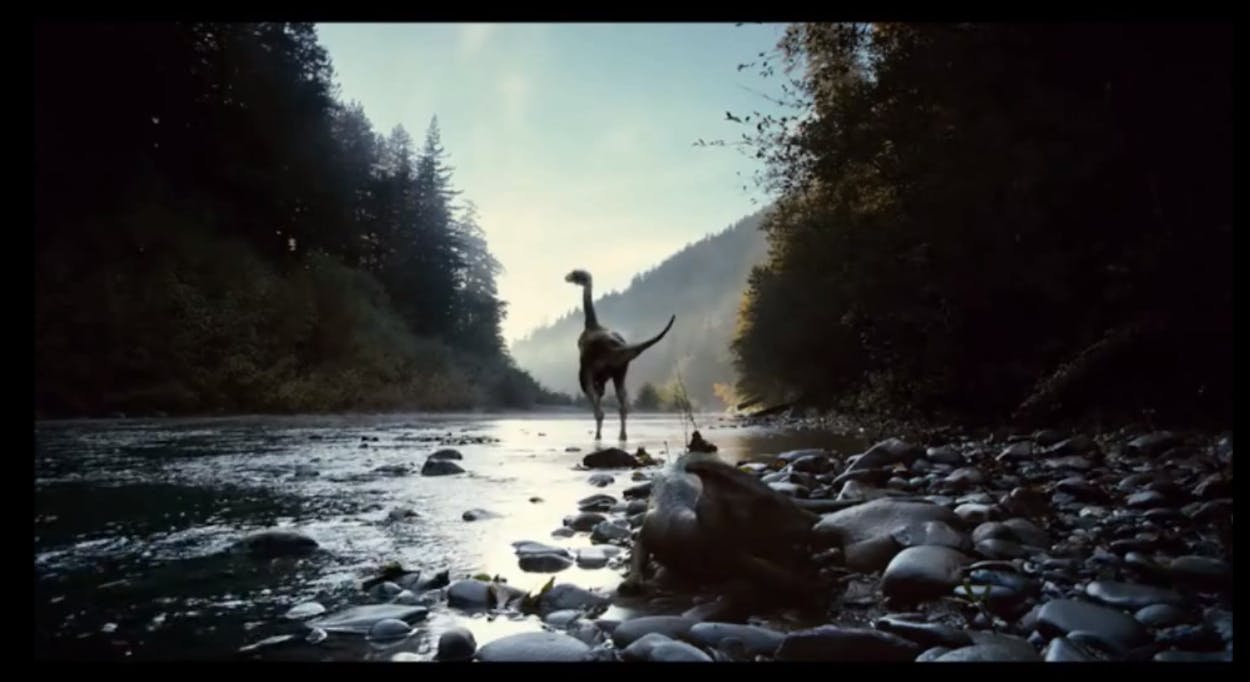The dinosaur scene in The Tree of Life, last year’s movie by Texas filmmaker Terrence Malick, is one of several he left open to interpretation in the Oscar-nominated movie that confounded the majority (including one of its actors, Sean Penn) and even spurred a cheat sheet by Salon‘s Matt Zoller Seitz.
In this curious scene, one dinosaur steps on the face of another felled and presumably ailing dinosaur and then changes its mind and seemingly pats it with affection, a gesture that is counter to the evolutionary theory of survival of the fittest.
Jim Emerson, writing on his Scanners blog, was just one of many mystified critics, but he finally had a chance to unpack the symbolism of the two-minute scene. Emerson recently spoke at the Conference on World Affairs, where he asked fellow panelist Michael Fink, who did visual effects on the movie, about the scene’s meaning. Emerson writes:
The premise of the four-shot scene was to depict the birth of consciousness (what some have called the ‘birth of compassion’)–the first moment in which a living creature made a conscious decision to choose what Michael described as ‘right from wrong, good from evil.’ Or, perhaps, a form of altruism over predatory instinct.
Forrest Wickman of Slate, readers of which rated The Tree of Life their favorite movie of 2011, advanced this revelation by testing its accuracy. Wickman contacted science writer Brian Switek, author of Written in Stone: Evolution, the Fossil Record, and Our Place in Nature, and asked him if these two dinosaurs had the capacity for compassion. Switek said:
I’m not sure if the time period is specified, but that dinosaur looks like a deinonychosaur to me—something along the lines of Troodon . . . This would put the scene somewhere around 75 million years ago.
“Troodon and kin were relatively smart by dinosaurian standards—they had relative brain sizes comparable to some modern birds—but such a dinosaur wouldn’t have been able to choose ‘right from wrong, good from evil’ any more than a raven could … The Cretaceous world wasn’t one of right and wrong, good and evil. There was only nature, and nature was indifferent to such concepts of morality.
Wickman goes on to ask about maternal love in dinosaurs, but the point had already been made: Malick might be too smart for his own good, and a second viewing might be in order.






